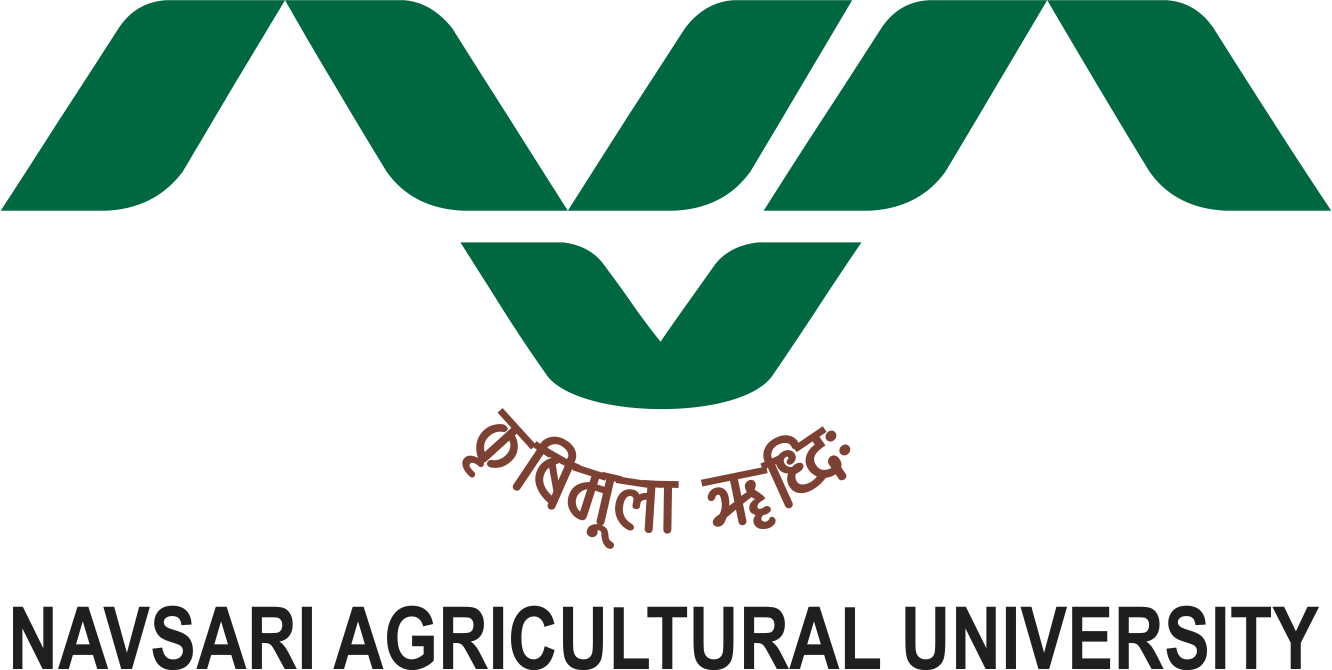

National Agricultural Higher Education Project (NAHEP)
Centre for Advanced Agricultural Science and Technology
(CAAST) on Secondary Agriculture
DIRECTORATE OF RESEARCH
Navsari Agricultural University
Navsari-Gujarat (INDIA)

STUDENT NOTICE FOR ADMITTANCE IN CAAST SUB-PROJECT OF NAHEP ON SECONDARY AGRICULTURE
National Agricultural Higher Education Project (NAHEP) is a new initiative of Indian Council of Agriculture Research, funded by World Bank and Government of India on sharing basis. The successful implementation and monitoring of this project is on the shoulder of Education Division, ICAR, New Delhi. NAHEP is ambitious step of ICAR for to strengthen the national agricultural education system in the country with financial assistance of the World Bank by investing on infrastructure, competency and commitment of faculty, and attracting talented students to agriculture. Navsari Agricultural University is one of the institutions in India selected for implementation of Sub-Component- Advanced Agricultural Science and Technology (CAAST). The project is approved to NAU during 2018, in the theme of Secondary Agriculture Entitled “Establishment of Secondary Agriculture Unit for Skill Development in Students and Farmers at NAU, Navsari”.
Objectives of CAAST project at NAU are:
- • To acquaint PG students with latest technologies in different spheres of secondary agriculture utilizing national and international expertise.
- • To develop technologies for processing and waste utilization in agriculture and allied fields, analytical techniques and its commercialization to private companies, budding entrepreneurs and agro-industries through strengthening of facilities and infrastructure
Opportunities to PG students under CAAST Project:
- • Provision for training in Universities/Institutes of Higher Learning and in Leading Private Companies/Industries
- • Provision for Exposure Visits to Universities/Institutes/Private Companies/Industries
- • Provision for Participation in Vocational Courses/Workshops/Seminars/Symposia
- • Provision for Participation in Collaborative Research in various Institutes/Universities
Thematic areas under CAAST Project and Departments Involved:
| Units/College | Thematic Areas | Departments |
|---|---|---|
| Unit-I (ACoH) | Processing and Waste Utilization in Horticultural Produce | Post Harvest Technology, Fruit Science, Vegetable Science. |
| Unit-II (CoF) | Scientific Utilization of Non-Timber Forest Products and Medicinal and Aromatic Plants | Forest Products and Utilization, Forest Biology and Tree Improvement, Silviculture & Agroforestry, Forest Resource Management. |
| Unit-IV (NMCA) | Pesticide Residue Analysis | Soil Science and Agricultural Chemistry, Biochemistry, Microbiology, Plant Pathology, Entomology, Agronomy (Weed Management), Plant Molecular Biology and Biochemistry. |
Terms and Conditions:
- 1. Post graduate students from Agriculture / Forestry / Horticulture faculties excluding In-Service Candidates are eligible for admittance in CAAST programme on secondary agriculture.
- 2. Students enrolled in departments (column III) mentioned for each thematic area (column I) would be preferable for eligible for participation, if seats remain vacant in above thematic area only after preference would be given to respective faculties.
- 3. Total Thirty (30) M.Sc. students and Fifteen (15) Ph.D. students from three thematic areas (Agriculture/Forestry/Horticulture) would be selected for participation in CAAST related activities.
- 4. M.Sc. and Ph.D. students admitted in 2020 onwards are eligible for applying in CAAST sub-project and should have a CGPA of 7.0 and above in their graduation or post graduation.
- 5. Overall, 33.33 per cent of the positions would be reserved for girl students. In case, the girls’ enrollment is overriding boys, due representation would be provided to boys. In case of non-availability of eligible students, the reserved seats for gender may be interchanged so that positions are not wasted.
- 6. Selected students will be a part of CAAST till March 2023 or the submission of their thesis on and before March 2023
- 7. Selected students can be discontinued from CAAST owing to indiscipline/misbehavior/lack of attendance or if they cause damage to the property during the training or research programme at any time by issue of one week’s notice. At the end of the training period, the appointee has no right to claim any employment or engagement in NAU.
- 8. Selected students will be governed by Common PG Rules and Regulations of SAUs in Gujarat.
- 9. Both Master’s and Ph.D. students admitted in CAAST sub-project would be eligible for international training if possible as per prevailing COVID-19.
- 10. For international training, managing a visa and passport would be sole responsibility of the selected P.G. students.
- 11. No TA, DA will be paid for appearing in the exam/group discussion and attending the interview.
- 12. The applicant must bring with them original documents and one set of photocopy of related documents/testimonials at the time of interview, failing which he/she shall not be allowed to appear the interview.
- 13. Canvassing in any form will lead to cancellation of candidature.
- 14. Interview committee reserves all rights to reject any or all candidates.
- 15. Information pertaining to selection is available on NAU website: http://www.nau.in/under Circular Section.